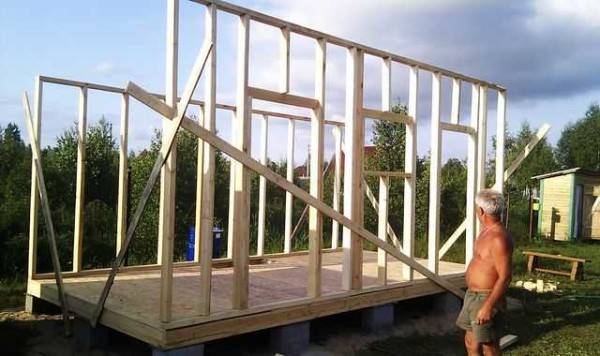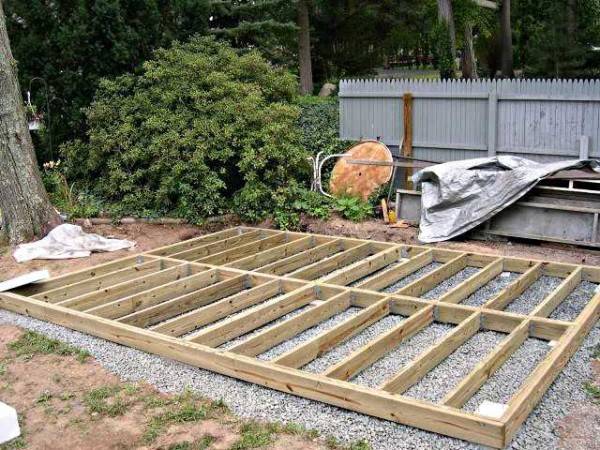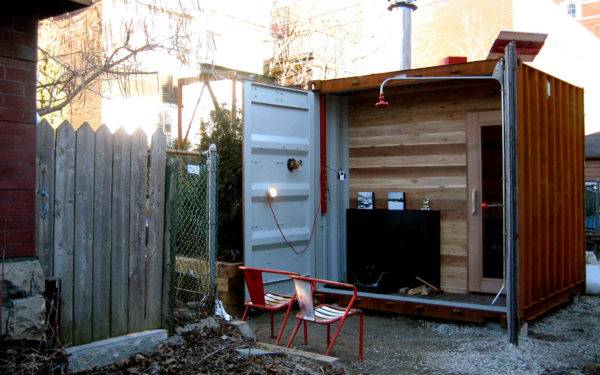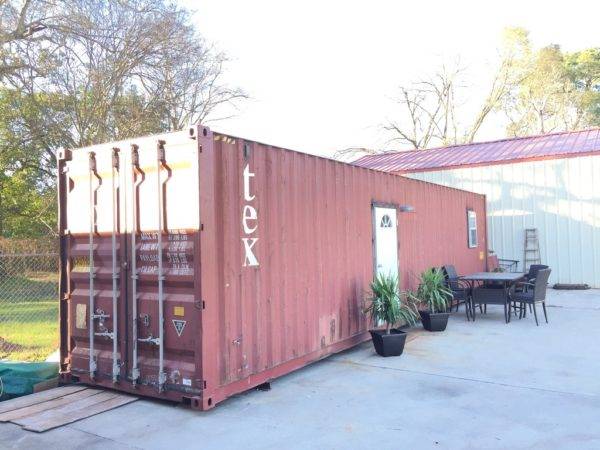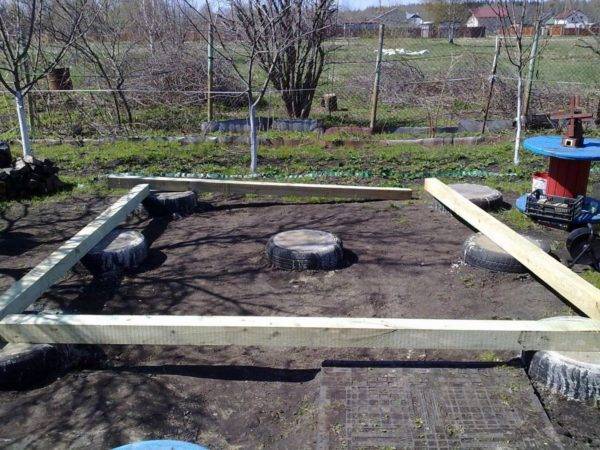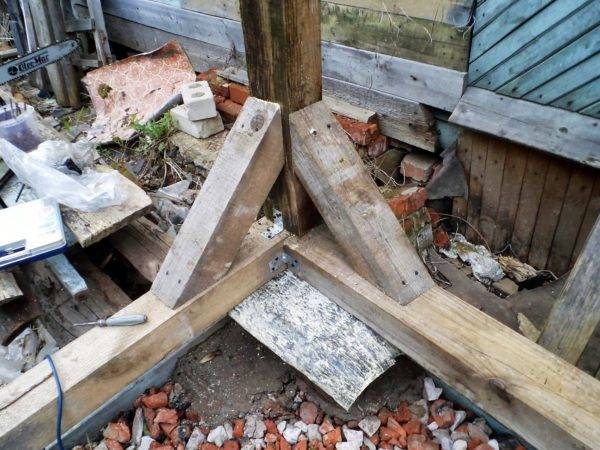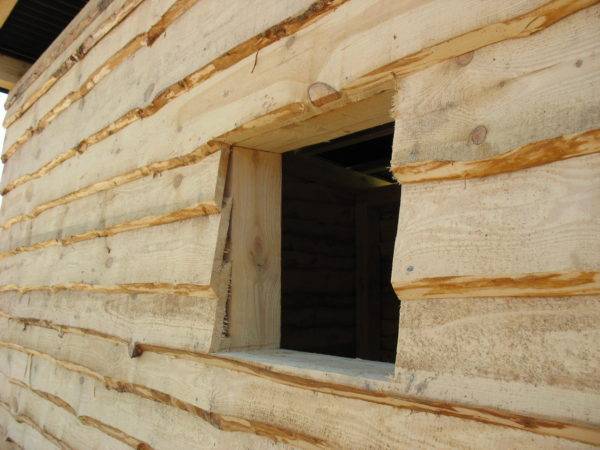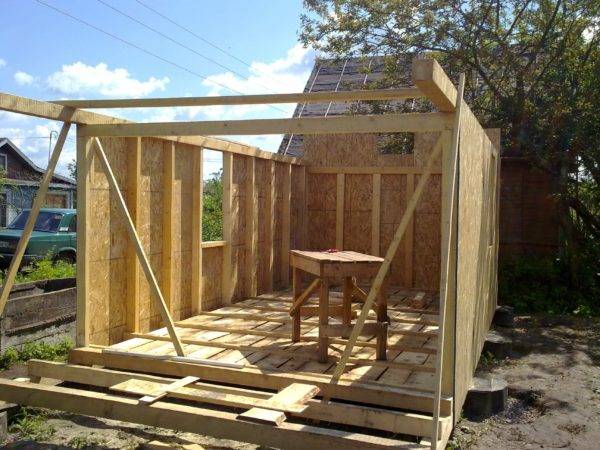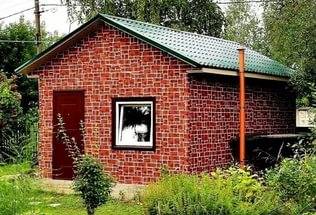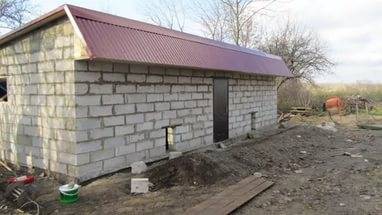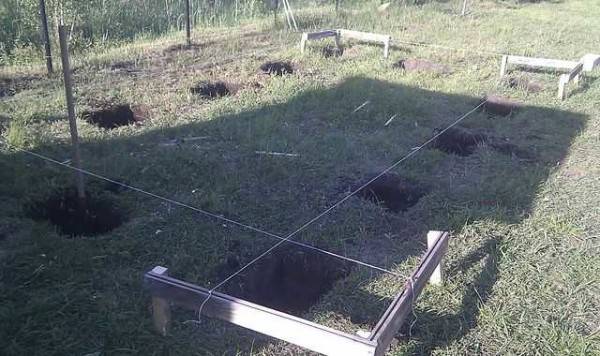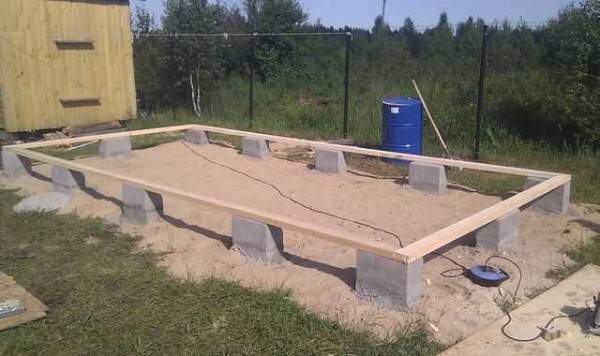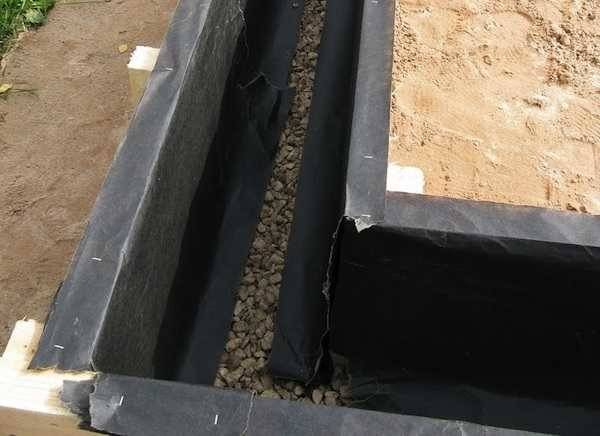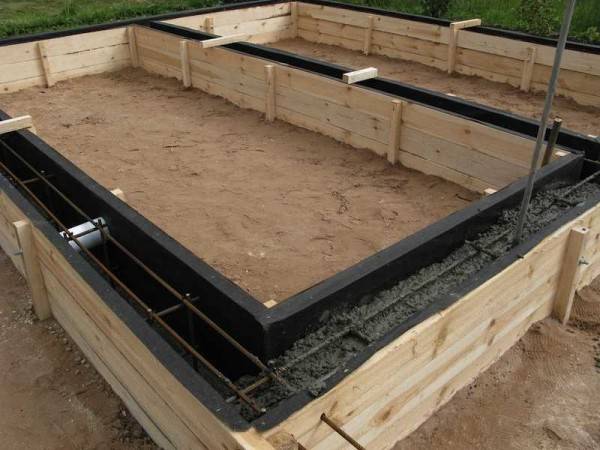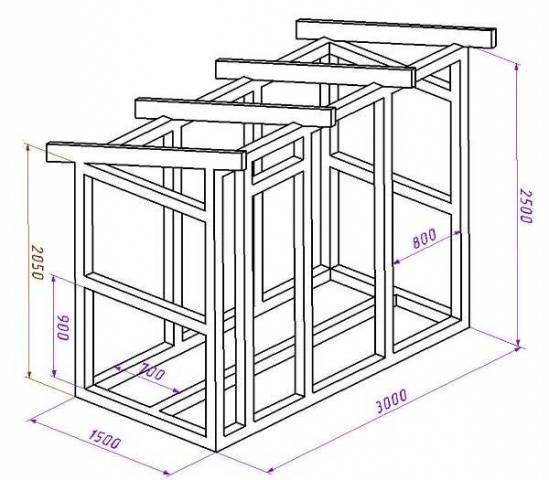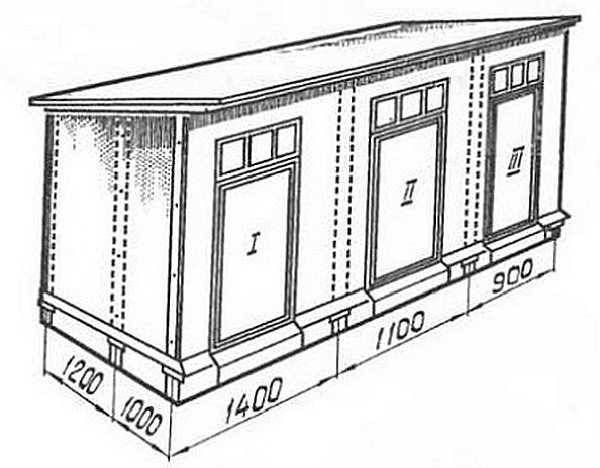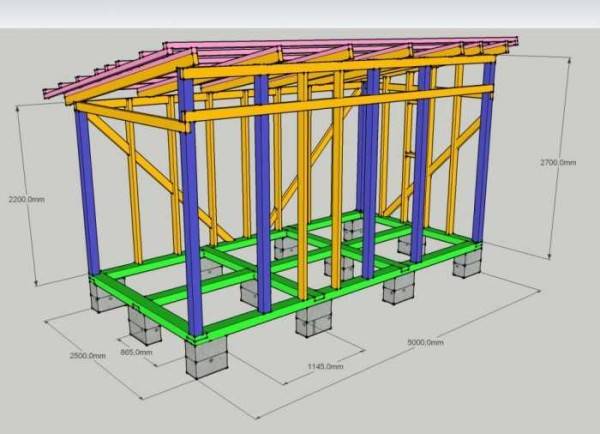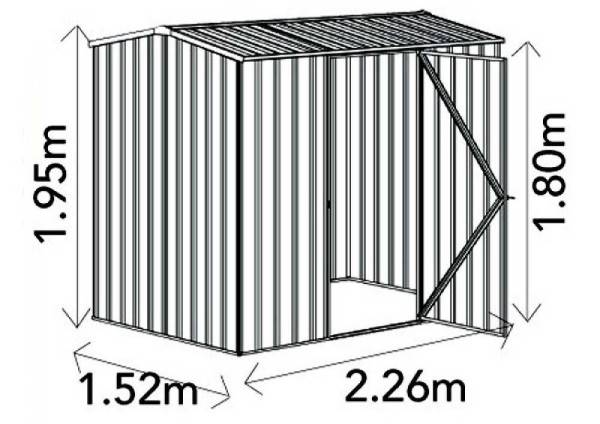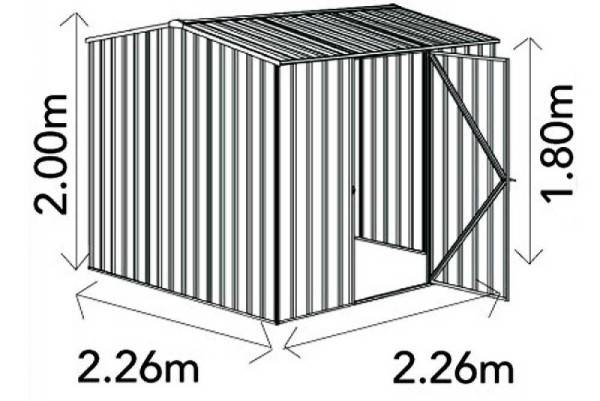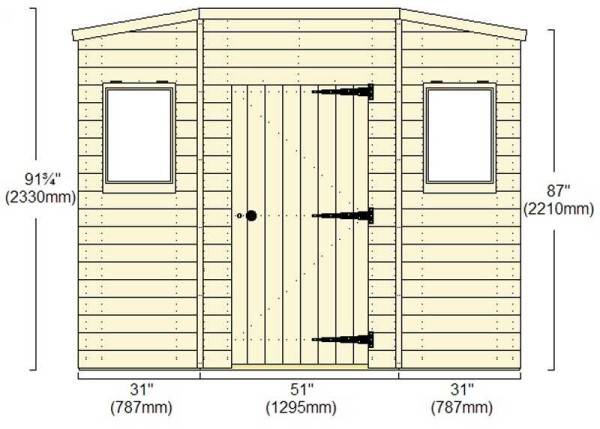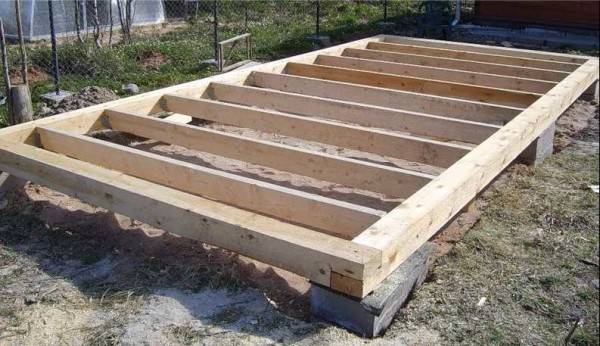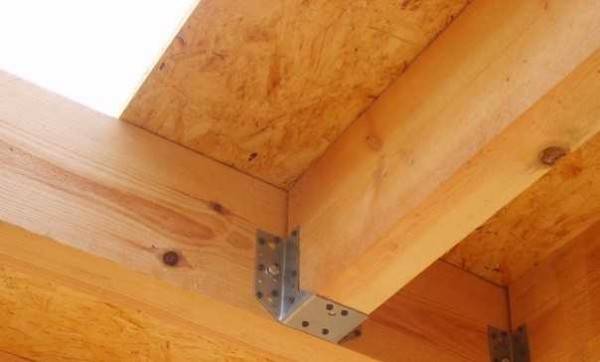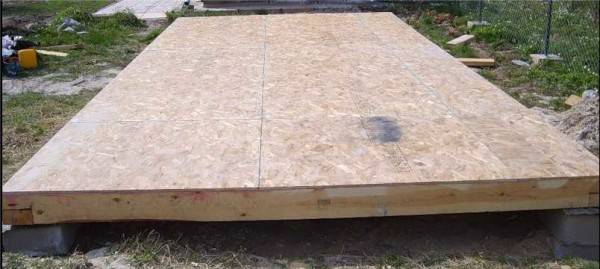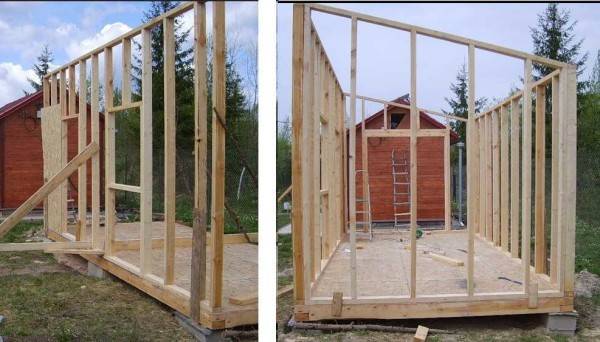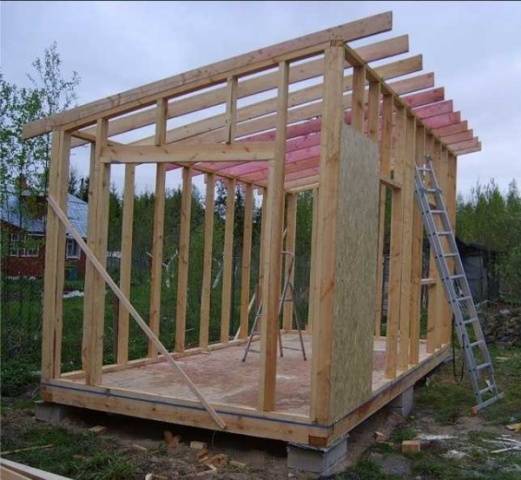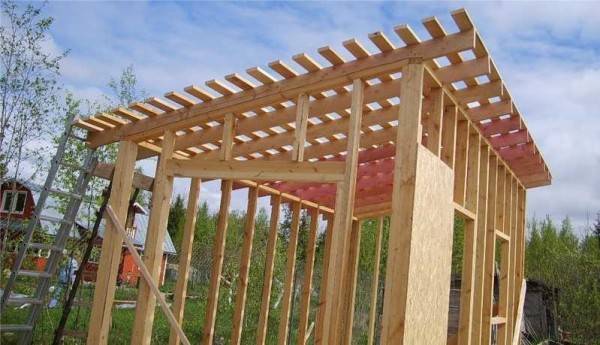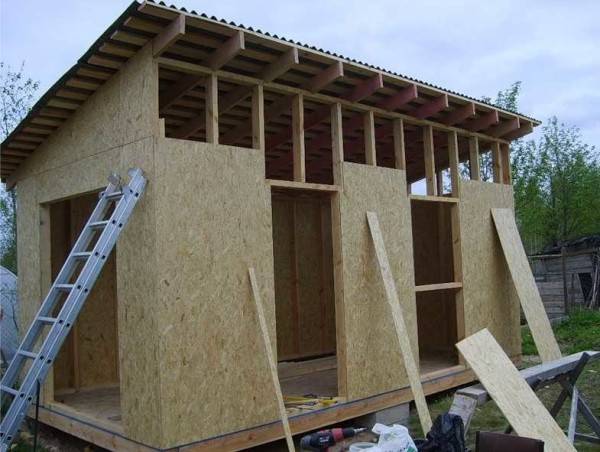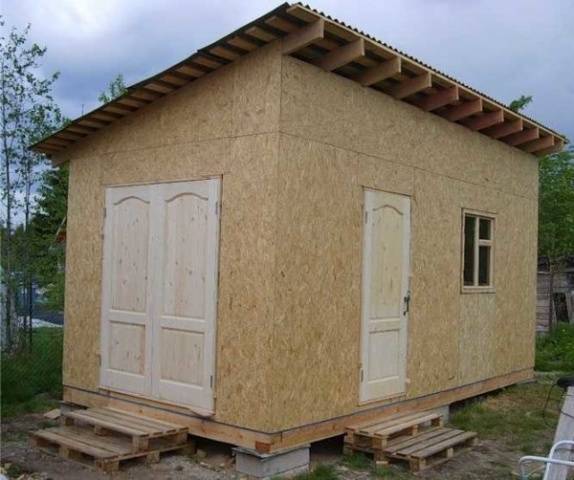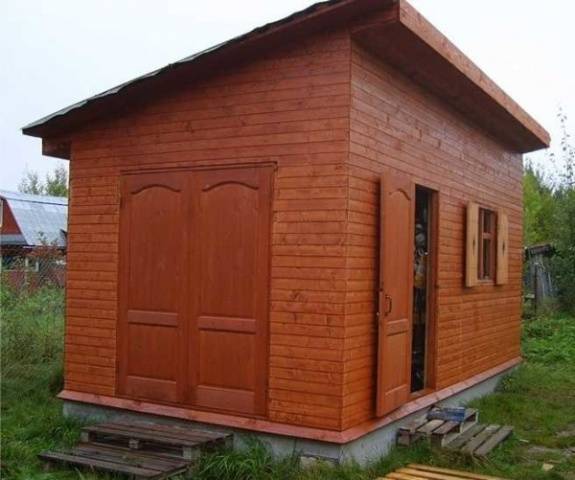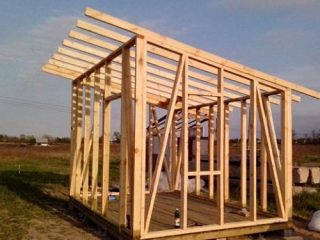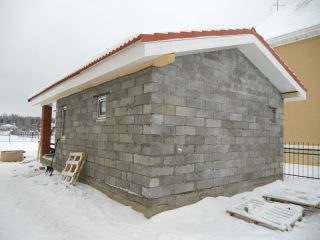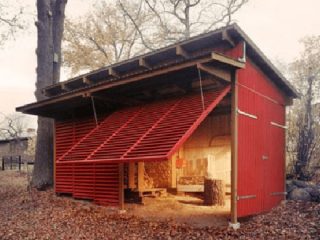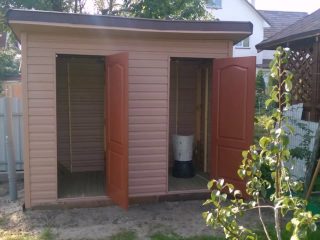Content
To maintain a garden plot in the country, you definitely need a barn. In the utility room, tools and other things are stored that are inappropriate in the house. It is not so difficult to build a shed for a summer residence with your own hands, even if this is the first experience of construction work. The main thing is to have aspiration, and we will try to describe in detail all the steps of construction.
What is easier to build a barn from
The easiest way is to install a shed on a garden plot using frame technology. These prefabricated structures are easy to assemble alone. The frame is the basis of the barn. Usually it is assembled from a bar, but a metal pipe or profile is also suitable.
If desired, a ready-made metal frame for a utility unit can be ordered at the factory. At home, you will only have to assemble the structure yourself with the help of hardware. You can install a prefabricated shed in 2-3 days.
When building frame utility blocks, it is not necessary to fill in a reinforced foundation. These buildings are very lightweight. A simple columnar base is enough for them. If the construction of a shed for a summer residence takes place on complex soil, then reinforced concrete blocks are used or concrete tape is poured. On such a foundation, you can even put brick sheds or a block building.
Previously, many summer residents built frame hozblok without a foundation. You can do this, but on condition that the soil in the garden is dense and not flooded. According to this technology, the racks of the prefabricated frame are buried 80 cm into the ground, after which they are poured with concrete. However, the size of a shed without a foundation is very limited. You can build a small shed to store garden equipment or tools, and place a wood shed nearby.
If the garden plot is located on dry and solid ground, from which water quickly leaves after rain, the shed can be placed on a sand and gravel embankment. It is made large in size by 50 cm in each direction than the building itself. A frame made of timber is laid on top of the embankment, and the frame racks are attached to it.
Installing a utility block without a foundation in a summer cottage is not the best option. Even with good processing of wood with protective impregnations, the building will not last long.
Options for the construction of country sheds
When building a shed for a summer residence, any material available on the farm is used. You can simply install a ready-made bunker in the garden, which will play the role of a small utility block. Let's take a look at several options for beautiful sheds.
Hozblock from a container
The simplest design for storing garden equipment and tools is a sea or rail container. If you re-equip it a little, then in such a utility block you can organize a shower, a toilet or even a summer kitchen. The containers will make beautiful sheds if you paint them on the outside and sheathe them with clapboard inside.
If you managed to get and bring a container to the dacha, then to install it you will need to lay a columnar foundation. We build it from red brick, cinder blocks or pour monolithic pillars from concrete.
However, the installation of such a beautiful utility block can bring problems to the owner if the dacha is still under construction and there is no electricity on it. The container is a solid metal box. To make a shed out of it, you will need to cut openings for windows and doors in the walls with a grinder. Then you still need to weld the door frame with electric welding.
Barn made of wood plank
It has always been considered that the easiest way to build a barn in the country with your own hands from boards. If you try to process the wood well, you will get a beautiful garden building. A columnar foundation, which can be made of monolithic concrete, is enough for a light shed. Pits for the posts are dug around the perimeter of the future building in steps of 1–1.5 m. Formwork can be made from old tires from a car, as shown in the photo. In the center of the supports, an anchor must be concreted from the reinforcement. The lower frame will be attached to them.
The scheme of a utility block made of boards is simple. First, the frame of the lower frame strapping is assembled from a bar with a section of 100x100 mm. It is laid on a columnar foundation. To protect the wood from moisture, sheets of waterproofing material are laid between the frame and the concrete supports.
Racks are attached to the lower frame from a similar bar. They are strengthened by mowing. This will make the structure more stable. Another harness is assembled from the top of the racks. For reliability, all connecting nodes are reinforced with metal overlay elements.
Logs from a 40 mm thick board are nailed to the lower strapping in 50 cm increments. The floor of the country house block is laid from OSB or a 20 mm thick board. To make the shed beautiful, it is better to use edged board for wall cladding. It is nailed with an overlap so that precipitation does not penetrate into the room through the cracks.
Most often, a board shed project is developed with a shed roof. In front, it is raised so that a slope forms towards the rear wall. For floor beams, a board with a section of 40x100 mm is used. It is fixed to the upper strapping bar using metal corners and self-tapping screws.
Any inexpensive material is suitable for the roof, for example, roofing material or slate. The most beautiful buildings, of course, are covered with expensive roofing materials: ondulin, flexible tiles, etc.
Beautiful utility block made of OSB boards
For projects of utility blocks using frame technology, OSB slabs are a godsend. To install such a summer cottage, you will have to follow the same steps as when building a structure from a board. The only difference is the installation of additional frame racks with a step of 600 mm to strengthen the walls, and instead of edged boards, sheathing is performed with an OSB board.
Brick hozblok
Without accurate drawings and calculations, building a brick shed will not work. Usually, garden tool blocks are not made of heavy material, but if such a decision is made, then pouring the strip foundation will be required. The walls are laid in bricks, while it is important to observe the dressing of the seams between the rows. On top of the finished box, the Mauerlat is attached to the walls with anchors. It is made from a bar with a section of 100x100 mm. That is, an analogue of the upper strapping is obtained, as in frame technology. Floor beams are nailed to the Mauerlat, and a roof is erected on top.
Block shed
The construction of a barn from blocks is no different from the technology of erecting a brick building. For masonry walls use sandstone, gas and foam blocks, cinder block. The design is so strong that it is possible to do without a Mauerlat in some cases. For example, if a shed roof is installed on a cinder block building, then the floor beams can simply be embedded in the masonry.
Step-by-step instructions for building a utility block
Now we will look at how the construction of a shed in the country is going on with our own hands on a columnar and strip foundation.For acquaintance, we will present drawings of various buildings that can be used when drawing up a project on your own.
Determining the foundation design
Light suburban utility blocks are installed on a columnar foundation. Supports are required at the corners of the building, as well as where the partition will be installed. Their step depends on the length of the shed, the thickness of the log and the bar of the lower strapping.
Suppose, under small country sheds 2x2 m, four supports can be installed in the corners. In this case, you need to use logs with a thickness of 50 mm. With an increase in the length of the building, the step of the supports is reduced to 1–1.5 m. If the width of the shed is additionally increased to 3 m, then it is necessary to put more intermediate supports so that the floor does not bend or use logs 70 mm thick. Here let the owner decide what is more profitable for him. The bar for the lower strapping must always be taken with a cross section of at least 100x100 mm. Naturally, you will have to put supports more often under a thin frame.
To build a columnar base, you need to dig holes with a depth of 70–80 cm, fill in 20 cm of sand and gravel cushion, install formwork and pour concrete. It is easier to make a base from ready-made reinforced concrete blocks. They are simply installed in a pit on a poured pillow, after which the gaps are rammed with earth.
If it is decided to build a shed in a country house of bricks or blocks, then a strip foundation is poured. A trench under the base is dug 60 cm deep. The width of the tape itself should turn out to be slightly greater than the thickness of the walls. For example, if the walls are lined with bricks, then their thickness will be approximately 25 cm.Then we take the width of the tape at least 30 cm.
A trench under the base is dug out wider than the thickness of the tape, since they take into account the free space for installing the formwork. The bottom of the trench is covered with rubble 15–20 cm thick, and the side walls are covered with roofing material.
In a trench, a frame is made of reinforcement with a diameter of 12–14 mm. The rods are tied together with wire. The finished metal structure should not touch the walls of the formwork. Optimally maintain a gap of 5 cm.
Formwork with a steel frame is poured with concrete mortar of the M-200 brand. Brick walls begin to be erected no earlier than a month later.
Examples of drawings of country sheds
To develop a project for a country shed, you need to build a drawing. In the photo, we have given several examples. Schemes are designed for the most common sizes, but they can be customized to suit your requirements.
Let's start the review of the drawings with the utility blocks equipped with a shed roof.
The following drawings show a shed with a gable roof.
And in the end, a building with a sloping roof. For a barn, not a very good roof option, but it is found in summer cottages.
Construction of a wooden shed using frame technology
So, it's time to start building the shed itself. Frame technology is most acceptable for such country buildings. It is optimal to give preference to the size of the utility block 6x3 m. It is easier to make a single-pitched roof. To get a slope, the front wall is made 3 m high, and the back wall 2.4 m high.
Step by step, the whole process looks like this:
-
From a bar with a section of 100x100 mm or 150x150 mm, the frame of the lower strapping is assembled. The structure is attached to the pillars with anchor bolts, placing pieces of roofing material for waterproofing. Corner frame joints are reinforced with mounting metal corners. Anchoring the frame to the foundation is especially important in windy regions. Otherwise, a light wooden structure may be displaced.
-
Logs are attached to the finished frame from a board with a section of 150x60 mm. Fixation is carried out using steel mounting brackets. The lags must be set so that they are in the same plane with the frame. Otherwise, it will be difficult to fix the flooring due to the differences. They will have to be leveled with a plane or placed on each lining gap between the joists and the floor covering.
-
The construction of the frame of the utility block can be started after laying the floor covering or without it. As it is convenient for anyone. If the first technology is chosen, then OSB plates with a thickness of 18 mm are laid on the logs. You can use a board or moisture resistant plywood.
-
The racks and the upper harness are attached to the finished platform. Stability of the frame is given by temporary slopes and supports.
-
The upper trim will serve as the basis for the floor beams of the shed roof. They are made from a board with a section of 150x40 mm and are laid with a step of 600 mm. All frame posts should be installed at the same distance. They will serve as additional support for the roof. The length of the beams is calculated so that an overhang of about 500 mm is obtained on both sides of the shed.
-
On top of the lag for the roofing, a crate is nailed. For this, a board with a thickness of 20 mm is suitable. The pitch of the lathing depends on the roofing material, as well as the roof structure. The softer the surface and the lower the slope, the thicker the board needs to be nailed. Under the soft roof, in general, a continuous crate is mounted.
-
The country house block is usually built cold, therefore only waterproofing is laid under the roofing. In the case of the insulated version, the thermal insulation is protected by steam and waterproofing, and a ventilation gap is arranged under the roofing with the help of a counter lattice.
-
Finish the construction with the frame cladding. It is faster and easier to do this with OSB plates. An edged board with a thickness of 20 mm or wooden lining is suitable. The doors are attached to the box with hinges. A small step can be built near the entrance.
- If OSB plates were used as cladding, then such a shed will not look very beautiful. It is advisable to additionally sheathe the top with wooden clapboard, and then paint the building to match other summer cottages.
The video shows the technology of building a barn:
Conclusion
In general, you can build a shed with your own hands if you wish. After practicing on the outbuilding, you can switch to the construction of more complex buildings.
